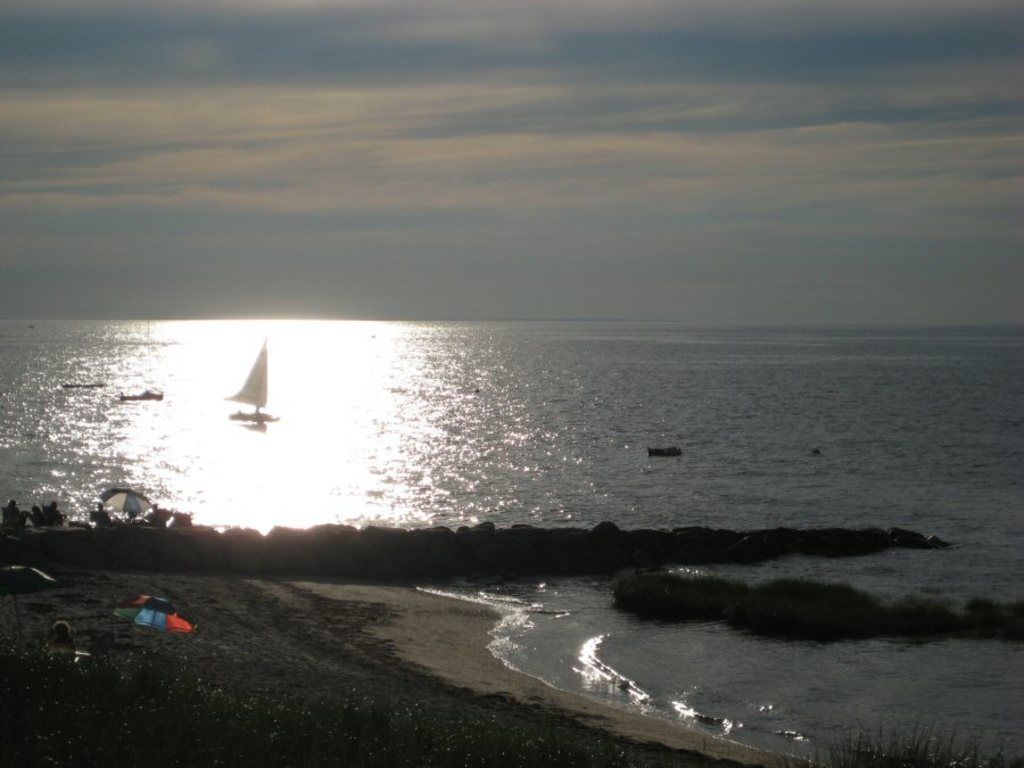Ocean Darkening: Understanding the Causes and Dangers
Hey there!
Here's a bit about a recent concerning development happening in our world's ocean — it's been darkening over the past two decades, and scientists are taking notice.
According to a study conducted by the University of Plymouth in the UK, over 20% of our globe's vast ocean has experienced a darkening effect, thanks to changes taking place in the uppermost layer known as the photic zone. This layer is crucial for us (and most marine life) since it hosts about 90% of all marine life and supports biogeochemical cycles essential for maintaining the planet's health.
Why is the ocean darkening?
Scientists believe there are a few factors contributing to this darkening phenomenon. For instance, changes in phytoplankton blooming dynamics and fluctuations in sea surface temperature are thought to play a role.
In coastal regions, nutrient-rich waters rising to the surface due to factors like agricultural runoff and heavy rainfall are fueling phytoplankton blooms. Research suggests that our climate is becoming increasingly unstable, leading to greater instances of heavy rains and the intensification of storms.
But it's not just about the coasts. In the open ocean, darkening may be linked to increasing plankton populations that block out sunlight as water temperature rises.
Where is this happening?
The study reveals that over 9% of the ocean has seen the photic zone shrink by more than 50 meters, while another 2.6% has experienced a 100-meter reduction. Most significantly, darkening has been observed in areas such as the northern part of the Gulf Stream, the Arctic and Antarctic regions, and coastal zones and enclosed seas like the Baltic Sea.
So, what does all this mean for marine life?
Scientists warn that effects on marine species and ecosystems could be significant—but we're still in the early stages of understanding exactly what those consequences will be. Keep in mind that the photic zone is the main habitat for most marine organisms, where phytoplankton—micro-organisms that can photosynthesize, form the base of the food chain, and live in abundance close to the surface—thrive.
Marine animals hunt and reproduce in this zone, where food is plentiful. Phytoplankton also plays a vital role in producing oxygen and carbon cycling in the ocean, which in turn significantly impacts the planet's climate.
Thomas Davis, a marine environment conservation lecturer at Plymouth University, says ocean darkening could have far-reaching consequences for life on our planet. "Changes in the composition of plankton communities are causing a significant darkening of the ocean, which reduces the space where animals that depend on sunlight and moonlight can survive and reproduce," he explains.
"This is a real cause for concern," adds Davis. Other researchers echo his sentiments, warning that some light-dependent marine animals might start moving towards the surface, intensifying competition for food and other resources, potentially leading to fundamental changes in the marine ecosystem.
How was this research conducted?
For over two decades, the researchers analyzed satellite data and used modern ocean modeling to study the changes affecting the ocean's light penetration. They used data from NASA's Ocean Colour project to track changes in the surface of various sections, estimating the depth of the photic zone in different locations using an algorithm that measures light levels. They also studied the effects of daily and nightly fluctuations in light on marine species using models of solar and lunar radiation.
While changes in nighttime light levels were less significant, the study showed they have a distinctic impact on marine ecosystems as well.
The darkening of our ocean could have implications for environmental-science, health-and-wellness, and mental-health, as changes in the photic zone may impact marine life, including phytoplankton that play a vital role in producing oxygen and carbon cycling in the ocean. This research, conducted by the University of Plymouth, suggests that climate-change, such as heavy rains and the intensification of storms, could be contributing factors to the ocean's darkening. Furthermore, a warming open ocean may lead to increasing plankton populations that block out sunlight, contributing to this phenomenon.








